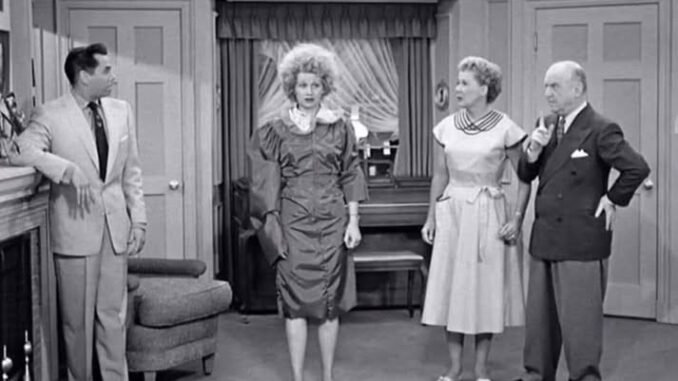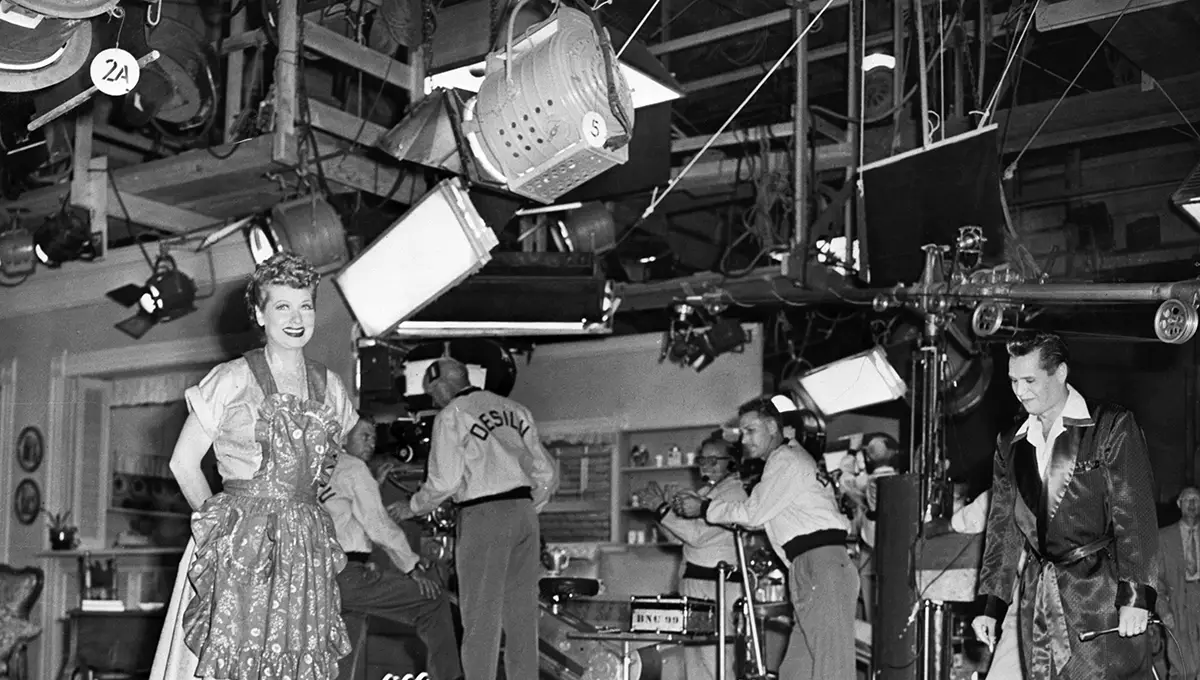
Few television shows have transcended time the way I Love Lucy has. Seventy years after its debut, it remains a masterclass in comedic timing, chemistry, and charm. But behind the laughter that defined Lucille Ball’s career lies a series of heartbreaks that revealed just how deeply she felt about the people who helped her build that legacy. Among those heartbreaks, one loss in particular left her shattered — the death of her beloved co-star, Vivian Vance.
To the world, Lucy and Ethel were inseparable: partners in mischief, chaos, and laughter. Onscreen, their friendship was the beating heart of I Love Lucy, a dynamic that grounded the outrageous antics of every episode. Offscreen, Lucille Ball and Vivian Vance’s relationship was even deeper — one built on mutual respect, shared battles against industry sexism, and the rare bond of two women who understood the pressures of fame.
When Vance passed away from bone cancer in 1979, Lucille Ball was, as close friends described, “inconsolable.” The woman who could make millions laugh with a single expression suddenly found herself unable to speak through tears. “She lost part of herself that day,” said a member of Ball’s inner circle. “Viv wasn’t just a co-star — she was her sister.”
Their friendship had not always been simple. Early in the show’s production, there were tensions between Vance and William Frawley, who played Ethel’s husband, Fred Mertz. Frawley’s gruff demeanor often clashed with Vance’s quick wit, and their mutual dislike became Hollywood legend. But Ball, ever the professional, stood by Vance — and that loyalty forged a lifelong connection.
What made their partnership revolutionary was that it defied the era’s expectations for women. In the 1950s, television wives were often portrayed as submissive or ornamental. But Lucy and Ethel were active, mischievous, and resourceful — always scheming, always dreaming. Ball insisted that Vance’s character be portrayed as Lucy’s equal, not her foil. She fought CBS executives who wanted to cast a less glamorous actress as Ethel, arguing that audiences needed to believe these women were truly friends. She was right.
Over six seasons, their comedic rhythm became iconic. Whether they were wrapping chocolates on a conveyor belt, stomping grapes in Italy, or sneaking onto Ricky’s show, Lucy and Ethel were always in sync. Ball once said, “Viv and I didn’t have to rehearse the laughter — it was already there.” That authenticity is what made I Love Lucy feel timeless.

When the series ended, their bond endured. They reunited several times on The Lucy Show and Here’s Lucy, each appearance tinged with nostalgia. But by the late 1970s, Vance’s health began to decline. Ball visited her frequently at her California home, even as Vance grew weaker. One of their final moments together, recounted by friends, remains among Hollywood’s most touching stories. Ball reportedly sat beside Vance’s bed, stroking her hair and whispering, “You know I love you.” Vance replied faintly, “I love you too, Lucy.”
When Ball left that day, she broke down in tears. Within weeks, Vance was gone.
At the funeral, Lucille Ball was visibly distraught, clutching a handkerchief and refusing interviews. Her husband, Gary Morton, helped her to her seat, where she sat silently through most of the service. A mutual friend later said, “Lucy was a woman who could keep it together through anything — except losing Viv.”
For years afterward, Ball avoided speaking publicly about Vance’s death, though she occasionally referenced her with bittersweet fondness. In one 1984 interview, she admitted, “There’s never been another like her. I still hear her laugh sometimes.”
That single sentence said everything. Behind the laughter and the lipstick-red glamour, Lucille Ball was a woman who cherished friendship as deeply as she cherished her art. And Vivian Vance wasn’t just part of her story — she was half of its heart.
In the end, what made I Love Lucy so enduring wasn’t just the comedy. It was the connection between two women who saw each other, supported each other, and changed television forever. The laughter they created together still echoes — but for Lucille Ball, one echo was always missing after 1979.